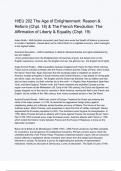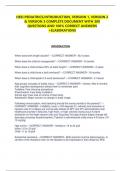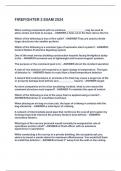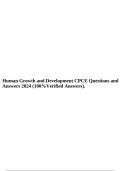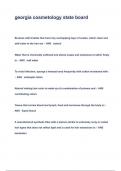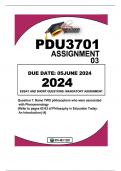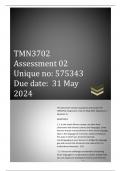Exam (elaborations)
HIEU 202 The Age of Enlightenment: Reason & Reform (Chpt. 18) & The French Revolution: The Affirmation of Liberty & Equality (Chpt. 19) Questions and Correct Answers (elaborations) with 100% Accurate , Verified , Latest fully Updated , 2024/2025 ,Already
- Course
- Institution
HIEU 202 The Age of Enlightenment: Reason & Reform (Chpt. 18) & The French Revolution: The Affirmation of Liberty & Equality (Chpt. 19) Questions and Correct Answers (elaborations) with 100% Accurate , Verified , Latest fully Updated , 2024/2025 ,Already Passed , Graded A+, Complete solutions guar...
[Show more]
